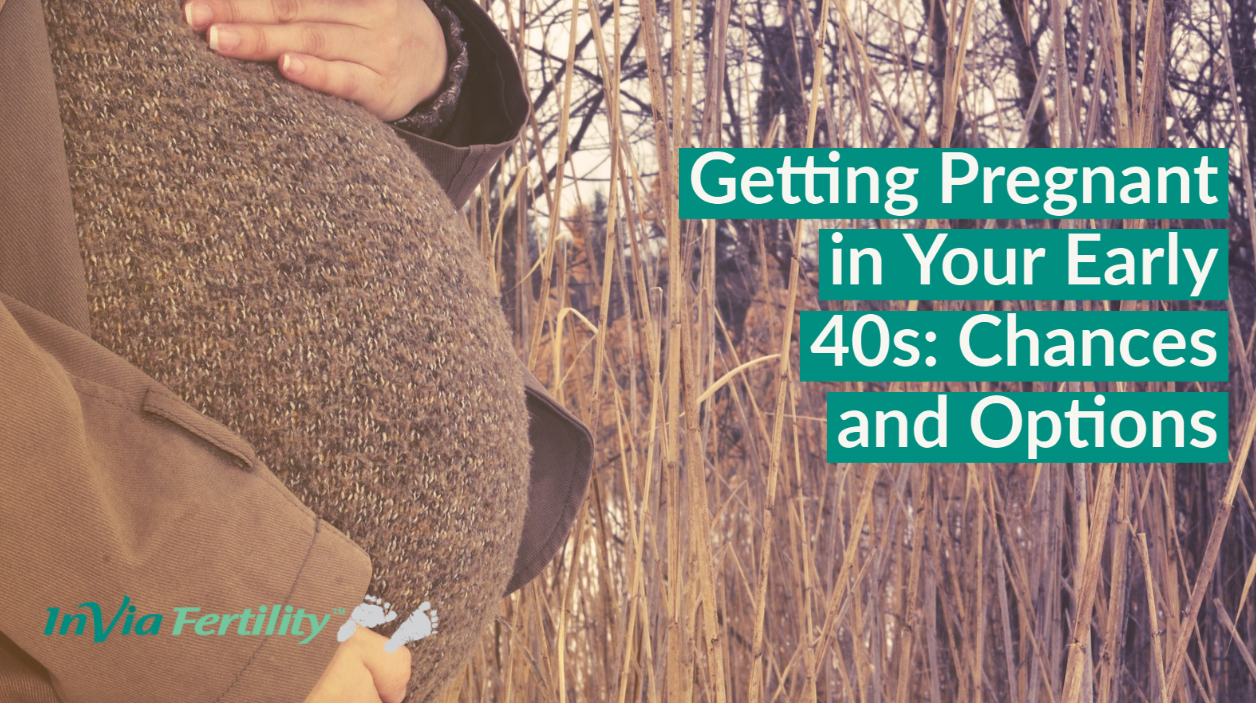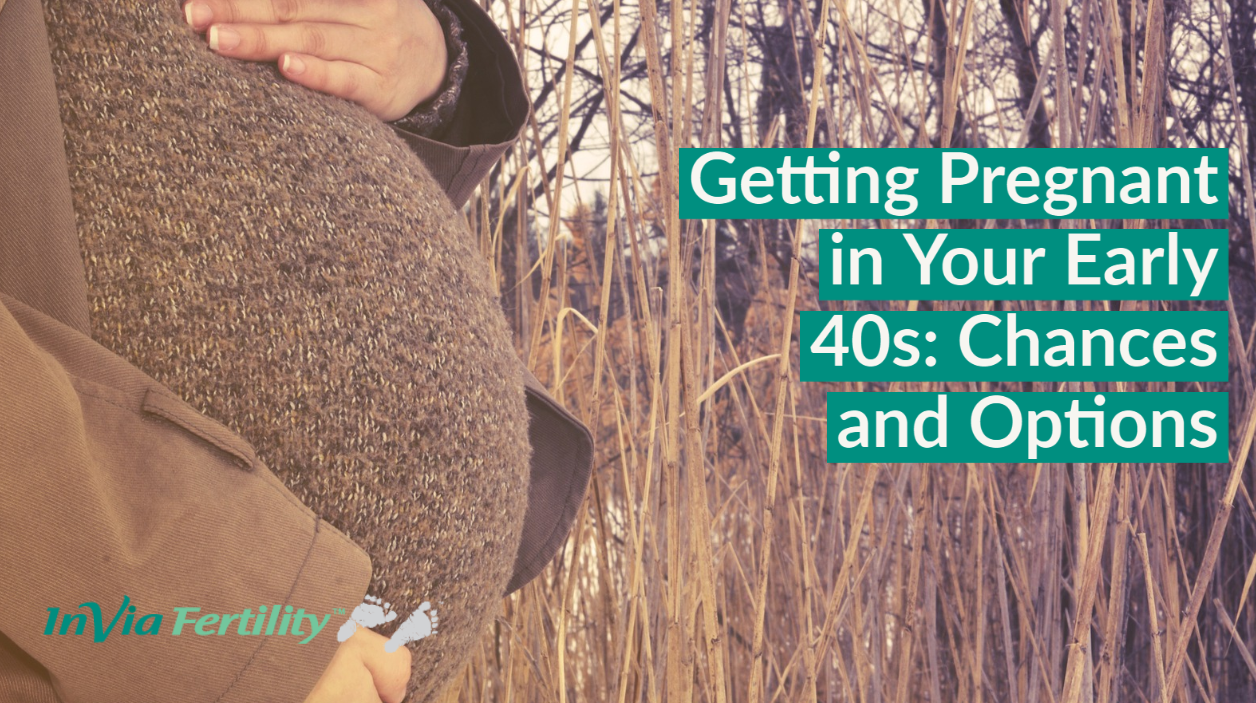 My previous blog addressed the chances of getting pregnant after 43 and the options for those in this age group who wish to have children.
My previous blog addressed the chances of getting pregnant after 43 and the options for those in this age group who wish to have children.
In this blog, we turn our attention to the years just prior to 43. Everything in this blog applies to chances of conception with assisted reproductive technologies. It does not necessarily apply to natural conception. Natural conception is always a possibility. However, it is not possible to predict who will get pregnant on their own and when.
Is Getting Pregnant After 40 Possible?
Yes! However the pregnancy rate, even with IVF, drops precipitously every year after age 40, and most women increasingly have trouble getting pregnant. The live birth rate per cycle at age 40 is around 18%, at age 41 is around 13%, age 42 is around 9% and 5% at age 43 years. If you are willing to use donor eggs, the live birth rate per transfer currently is more than 60%. In a previous blog, we discussed optimal treatment protocols for women with infertility aged 38 – 42 more thoroughly.
What Gives a Good Prognosis for Getting Pregnant After 40?
Here is what I have been able to summarize from a review of the literature:
- Normal ovarian reserve tests do not differentiate between women who will and will not get pregnant between ages 40 and 43. A 42-year-old woman with an FSH of 5 mIU /mL and an AMH level of 2.1 ng/mL does not have the same prognosis as a 32-year-old with the same numbers. Age is an independent variable that must be considered with respect to a woman's chances of getting pregnant.
- A low AMH level after age 40 years is associated with a poor outcome. In younger patients, low AMH patients will have reasonable pregnancy rates although they will produce few eggs.
- The same can be said about day-3 FSH levels. A normal level does not mean everything is okay, however, an abnormal level is an indicator of poor prognosis especially after age 40 years.
- After age 43, the prognosis is poor regardless of the ovarian reserve test results.
- A recent study analyzed data from a large number of women above age 40 who underwent IVF. The only group that had a significantly higher pregnancy rate were women who produced more than 16 eggs. Since they had more eggs, they also had more fertilized eggs and a higher number of embryos available for transfer.
- Previous ovarian surgery is a negative prognostic indicator. If you have had previous ovarian surgery, your chances of a positive outcome will be lower than someone who has not.
- A strategy we are currently exploring at InVia Fertility Specialists is to gather embryos from more than one cycle and do preimplantation genetic screening on them. If all of the embryos are shown to be abnormal, this can help the woman and her partner make a decision to use donor eggs.
- Patients with a mono-follicular response to high dose stimulation generally will not do well.
At InVia Fertility Specialists, we usually do not deny treatment to patients based on ovarian reserve test results alone. However, if the prognosis is poor, we do make it a point to share these numbers with our patients.
To see a fertility specialist who can help you find the best options for having a child based on your age and other relevant factors, make an appointment at one of InVia's four Chicago area fertility clinics.


 My previous blog addressed the chances of getting pregnant after 43 and the options for those in this age group who wish to have children.
My previous blog addressed the chances of getting pregnant after 43 and the options for those in this age group who wish to have children.
